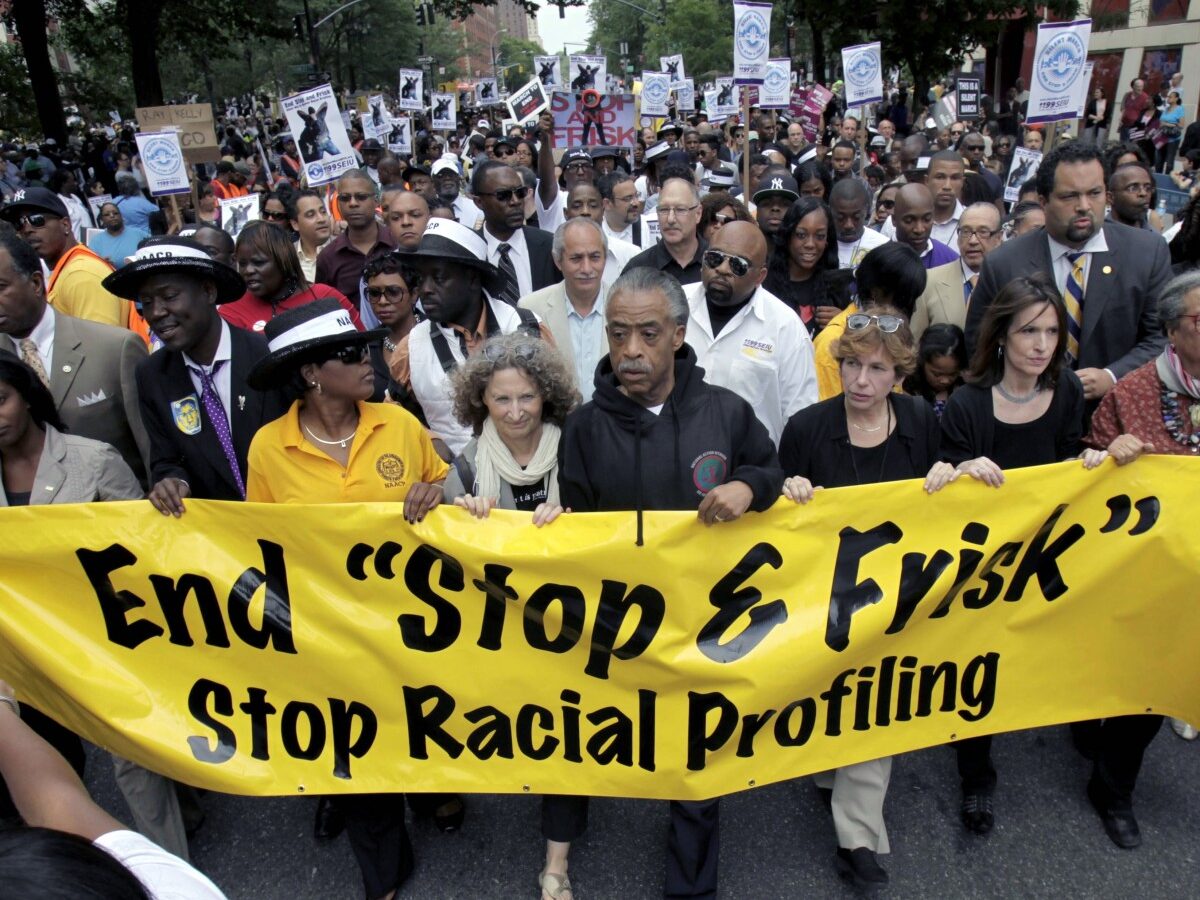
Hoping to bring a public face to the 5 million people who have been subjected to the New York Police Department’s stop-and-frisk program, New York-based developer Simon Lawrence and journalist Michele Lent Hirsch have created a Twitter account to document every search NYPD officers conduct.
“People think, ‘Oh, they stopped 600 people, that’s bad,’” Lawrence said, “but when you’re seeing they stopped a 12-year-old using force or something like that, that humanizes it a little bit.”
Though limited to 140 characters, each tweet includes the age of the person stopped by NYPD officers, their location, and the police officer’s reason for making the stop.
Scrolling through the @stopandfrisk Twitter feed, it’s hard to ignore the number of New Yorkers stopped for “other” reasons or a “suspicious bulge.” Another hard-to-miss trend is the number of times officers stop and frisk someone who never had a weapon on them in the first place.
The tweets seem to verify statements by groups such as the American Civil Liberties Union that have reported that nearly 9 out of 10 people stopped by NYPD officers are completely innocent.
“The thought was, let’s look at individuals, their age, and when they were stopped,” Lawrence said. “The idea was to bring a more human face to the raw stats and to put information out there that people may not be as familiar with — like the reason NYPD stopped people [might be] wearing clothes commonly used in a crime. What are clothes commonly worn in a crime?”
Lawrence and Hirsch say they do not include the person’s race because they believed the racial issues related to stop-and-frisk were already well-covered in the media.
Unlawful racial profiling
Data from the NYPD itself has shown that “the overwhelming majority of people subjected to stop-and-frisk are Black or Latino, and innocent of any wrongdoing,” said New York Civil Liberties Union Executive Director Donna Lieberman.
The controversial program has received national attention in recent months after the NYPD released a report that included information about the types of people targeted by its officers.
Though New York City Police Commissioner Ray Kelly has historically applauded stop-and-frisk and cited it as the reason New York City is “the safest big city in America,” a federal judge ruled in January that the program was unconstitutional. In May, the New York City Council announced plans to expand the definition of “biased-based profiling” — a move that would restrict the police’s ability to target suspects based on race and physical characteristics — at the objection of New York City Mayor Michael Bloomberg.
According to Bloomberg’s lawyer, Michael Best, Bloomberg was concerned that an end to stop-and-frisk would allow illegal drugs and weapons back on the streets and prevent police from doing their jobs. In a letter to city council members, Best also expressed concern that the bill “would authorize new lawsuits that could result in a blanket prohibition against the use of stop, question and frisk in New York City — and potentially many other strategies and tactics used by the police to address and prevent crime.”
Due to the controversy surrounding the practice, NYPD officers reduced their use of stop-and-frisk practices by 51 percent in the first three months of 2013. In that same time frame, murder rates dropped 30 percent and overall crime fell by 2.7 percent, according to the NYPD.
Stop-and-frisk practice coming to an end?
Though the future of stop-and-frisk remains unknown, Lawrence and Hirsch have plenty of material to tweet. As of June 27, they were still tweeting stop-and-frisk incidents that occurred in January 2011.
“One of the reasons we use Twitter is we wanted to have this steady drumbeat of stops just like one stop after the other, after the other, after the other, and these are all people being harassed by the police,” Lawrence said. “We actually wanted to tweet at the rate the NYPD stops people. Unfortunately, we couldn’t do that because Twitter would’ve blocked us — it would’ve been too much.”
Once the duo catches up to the current date, their need to tweet may dramatically drop.
On Thursday, the New York City Council passed the Community Safe Act, which tasks the Commissioner of the Department of Investigation with the responsibility of ensuring that the NYPD’s policies and procedures are effective and consistent with the law. The proposal also establishes a ban on profiling by NYPD officers.
“Racial profiling was previously banned, but the law had no teeth,” NYCLU Senior Organizer Candis Tolliver said. “This legislation requires police officers to base law-enforcement decisions on a person’s actions, not their skin color, religion or immigration status.”
“These reforms bring us closer to a New York City where police treat all New Yorkers – regardless of their race, sex, gender, religion or anything else – with courtesy, professionalism and respect,” Lieberman said. “We applaud Council Members Jumaane Williams, Brad Lander, Melissa Mark-Viverito and all members of the Black, Latino and Asian Caucus for their determined leadership in getting this landmark civil rights legislation passed.”


